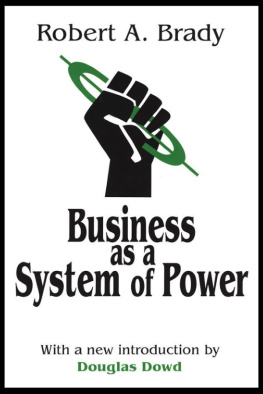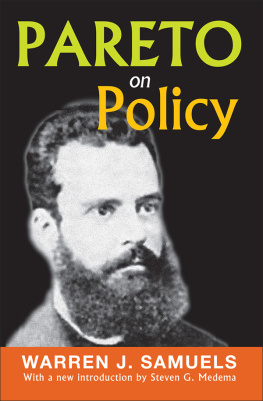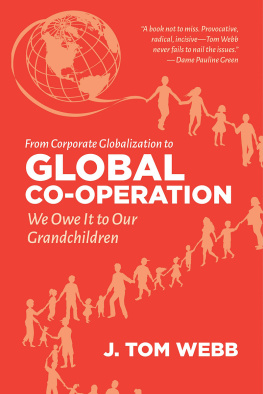Business as a System of Power
Business as a System of Power
Robert A. Brady
With a new introduction by
Douglas Dowd

Originally published in 1943 by Columbia University Press, New York.
Published 2001 by Transaction Publishers
Published 2017 by Routledge
2 Park Square, Milton Park, Abingdon, Oxon 0X14 4RN
711 Third Avenue, New York, NY 10017
Routledge is an imprint of the Taylor and Francis Group, an informa business
New material this edition copyright 2001 by Taylor & Francis
All rights reserved. No part of this book may be reprinted or reproduced or utilised in any form or by any electronic, mechanical, or other means, now known or hereafter invented, including photocopying and recording, or in any information storage or retrieval system, without permission in writing from the publishers.
Notice:
Product or corporate names may be trademarks or registered trademarks, and are used only for identification and explanation without intent to infringe.
Library of Congress Catalog Number: 99-087783
Library of Congress Cataloging-in-Publication Data
Brady, Robert A. (Robert Alexander), 1901
Business as a system of power / by Robert A. Brady; with a new introduction by Douglas Dowd.
p.cm.
Originally published: New York: Columbia University Press, 1943.
Includes bibliographical references and index.
ISBN: 0-7658-0682-7 (paper: alk. paper)
1. Industries. 2. Trade associations. 3. Democracy. I. Title.
HD71 .B7 2000
338.9dc21
99-087783
ISBN 13: 978-0-7658-0682-6 (pbk)
To
WESLEY CLAIR MITCHELL
who, without knowing it, has had much to do with the writing of this book
CONTENTS
PART I
THE EVOLUTION OF MANUFACTURING PEAK ASSOCIATIONS IN THE TOTALITARIAN BLOC
PART II
MANUFACTURING PEAK ASSOCIATIONS WITHIN THE LIBERAL-CAPITALIST SCHEME
PART III
COMPARISON AND CONTRAST OF TRENDS IN BUSINESS POLICY FORMATIONS
ROBERT A. BRADY WAS BORN in 1901 into a hard-working farm family in Marysville, Washingtonon the social and physical edge of the United States. Between then and his early death in 1963 Brady forged a career of scholarship quite extraordinary for an economist, even in an era when economists scope of knowledge was considerably broader than it is now. His competence extended through and beyond economics into engineering, the physical sciences, history, and literature, and he was at ease in several languages.
By the time Brady entered Oregons Reed College the works of Thorstein Veblen (18571929) were widely discussed, both critically and favorably. Brady was much influenced by Veblen, whom he came to know during the 1920s; he always acknowledged that influence in his own farranging books and essays, even though he often differed significantly from Veblen in style, scope, and conclusions.
The backgrounds of Brady and Veblen were quite similar in some respects and, in others, strikingly different. Both were born on farms (Veblen in Wisconsin), but in families with wildly divergent social and economic characteristics: Veblens father was a well-to-do and cultivated immigrant Norwegian who was on the frontier of scientific farming. Two in Veblens family became prominent academics, Thorstein in economics, nephew Oswald in mathematics.
Bradys father, in shocking contrast, was one of numberless thousands of boughten white children sold into de facto slavery by their families after the Civil Warin his case at the age of four, for fifteen dollars. He was purchased by a Midwestern farmer, was variously abusedforcibly denied any education, his teeth brutally removed to be sold when he was sixand worked as a slave until he managed to escape at the age of sixteen. The consequences of that ordeal shadowed the elder Bradys entire life and, as well, those of his seven children.
In addition to the general similarity of Bradys and Veblens scholarly interests and accomplishments, there was a basic commonality in their sociopolitical positions: both embraced industrialism but were sharply critical of its evolution within the capitalist framework; both deplored nationalism, organized religion, all forms of despotism, chicanery, media hype, and puritanical obsessions; both were what may be seen as a special U.S. creed of radical populismwhich, however, they saw as having diverse forms of socialism as the desired goal. Veblens works suggest some kind of highly decentralized (what the British came to call) guild socialism. Brady, who was insistent on the need for democratic economic planning, envisioned a larger role for the state.
Among Veblens many books, those most influential for Bradys own work were The Theory of Business Enterprise (1904), The Instinct of Workmanship (1914), Imperial Germany and the Industrial Revolution (1915), and Absentee Ownership: Business Enterprise in Recent Times (1923). These works wererepresented most clearly in Bradys The Rationalization Movement in German Industry (1933), The Spirit and Structure of German Fascism (1937), Business as a System of Power (1943), and Organization, Automation, and Society: The Scientific Revolution in Industry (1961).
All of those works, as well as others, whether by Veblen or Brady, shared the following arguments: 1) the ineluctable scramble of business for always more concentrated economic power; 2) the constant tendency for that power, both in its accumulation and in its use, to spread inexorably from the economic to the political and cultural spheres; 3) the creation and adoption of nationalistic and other dangerous irrationalities (such as racism) to enhance support for business power (in whatever guise) and diminish the possibilities of competing power centers (such as labor); 4) the possibilities and imperatives of modern technology, which 5) required for their beneficial realization fully democratic societies wherein, among other matters, economic decisions would be made in terms of socioeconomic rather than business criteria. In these and other analytical areas, one of Veblens many pithy aphorisms of contrast serves just as well for Brady: Profits is a business proposition, livelihood is not.
The generally common interests of Veblen and Brady were matched by a generally common analytical focus. Both were radically anti-capitalist; although both were well versed in Marxian economic theory and in the historical and then current realities of Europe, they differed importantly from Marx. As suggested above, their focus was on the insatiable appetite of business for socioeconomic power, with its initial source the control over the means of life.
Of course Marx also took ownership and control of the means of production as the source of capitals power over both workers and the stateThe executive of the modem state is but a committee for managing the common affairs of the whole bourgeoisie; so it was appropriate to make the core of his analysis Accumulation! Accumulation! That is Moses and the Prophets!
In their differences with Marx, Veblen and Brady were also differentiated from European critics of capitalism; they became, instead, what I have termed above radical populists or Made in the U.S.A.
Of the many factors distinguishing Brady and Veblen from Marx and his European followers were not only the numerous historical contrasts between the United States and all other societies but, as well, the many decades separating Marxs era from their own. Veblen began to write fifty years after Marx, Brady seventy-five years later. In those intervals, industrial capitalism had changed in many and critical ways. Until very late in the nineteenth century, not even the formal elements of political democracy existed in Britain, and even less so on the Continent. And Britain was, of course, the model for Marxs capitalism.












